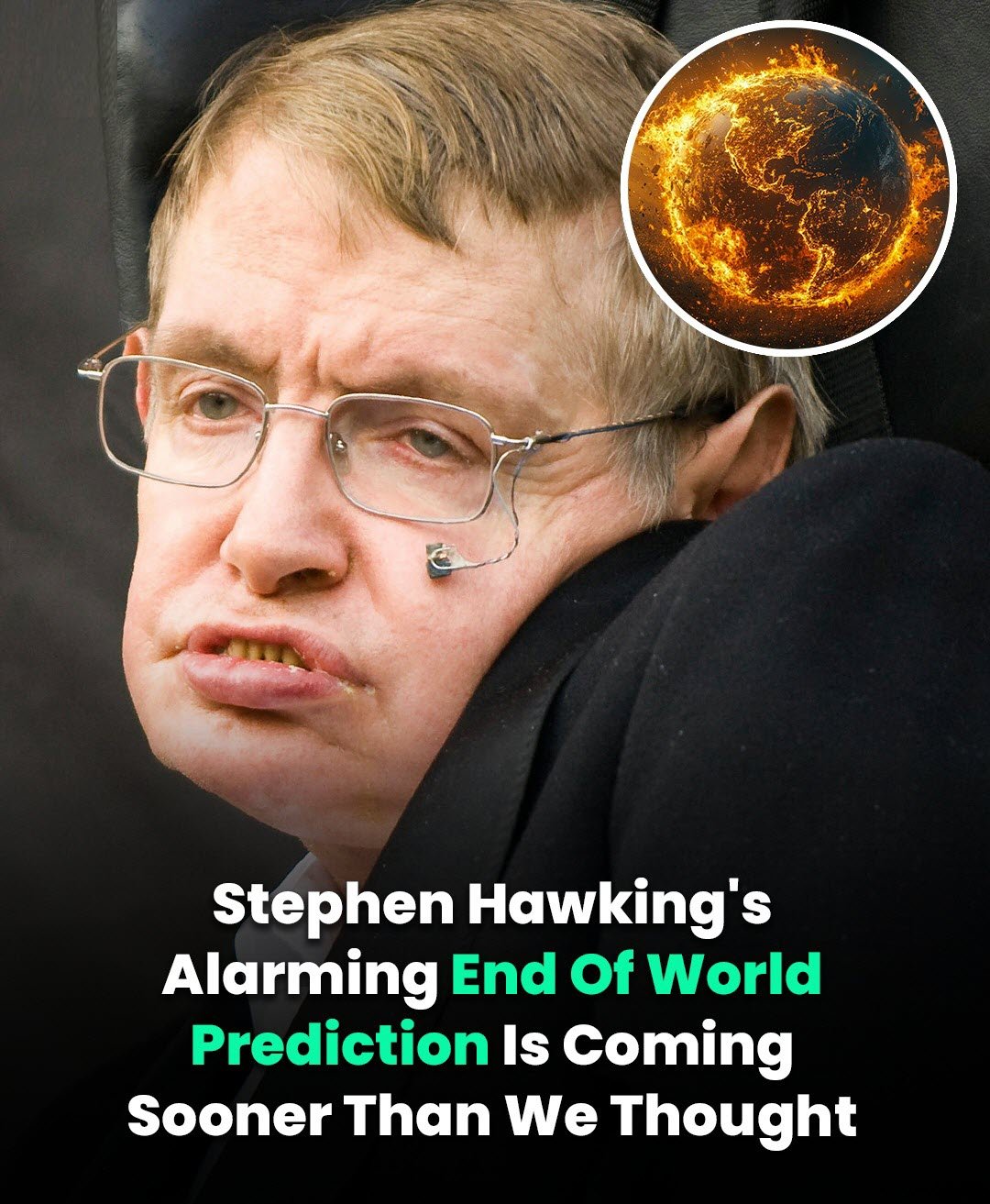The famous physicist Stephen Hawking once gave a chilling warning about the future of our planet, a warning that feels even more real today. Hawking, known for his groundbreaking work in theoretical physics and cosmology, often spoke boldly about humanity’s long-term survival.
One of his most serious predictions was about how the Earth could eventually reach a breaking point if people do not change course. Before his death in 2018, Hawking warned that unchecked population growth and rising energy use could lead to disaster.

At the Tencent WE Summit in November 2017, he gave a stark prediction. If humanity keeps going the way it is, Earth could become uninhabitable in about 600 years.
He explained: “This exponential growth cannot continue into the next millennium. By the year 2600, the world’s population would be standing shoulder to shoulder, and the electricity consumption would make the Earth glow red-hot. This is untenable.”
Using his well-known computer-generated voice, he warned that the planet could one day become a “giant ball of fire.”
His concern went beyond population and energy. He also pointed to nuclear war, pandemics, and artificial intelligence as major threats that could destroy life on a large scale.
After events like the COVID-19 pandemic, those words feel almost prophetic. Some reports later claimed NASA had supported his view, but the agency denied that. A NASA spokesperson told Newsweek: “NASA has not made this claim.”
Even so, NASA did confirm that it continues to study global threats to humanity, including climate change and environmental damage.

Hawking often spoke about the danger of climate change. In a 2016 interview, he said: “Although the chance of a disaster to planet Earth in a given year may be quite low, it adds up over time and becomes a near certainty in the next thousand or 10,000 years.”
Hawking’s concerns about global warming and the greenhouse effect are still echoed by scientists today. Many agree that the need for action on environmental issues is more urgent than ever.
Even with years of warnings, progress has been slow. The world’s growing population continues to stretch natural resources, and energy use keeps rising without control.
At the same time, artificial intelligence is advancing fast. It offers major benefits but also brings new risks that remain poorly understood and loosely managed. Hawking’s vision of the year 2600, when human activity could make Earth unlivable, stands as a powerful warning.
The question still hangs in the air. Will humanity act before it’s too late?


